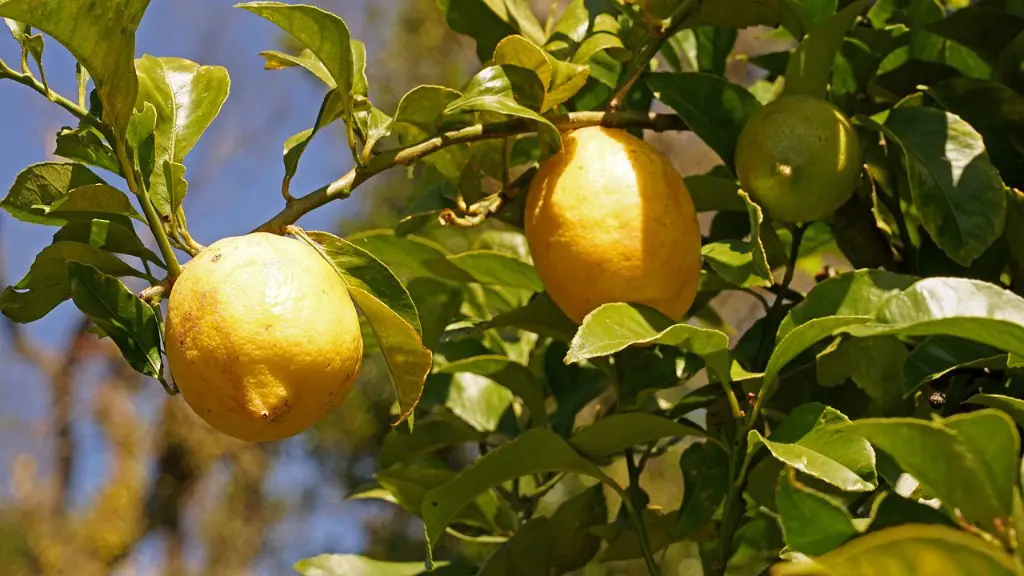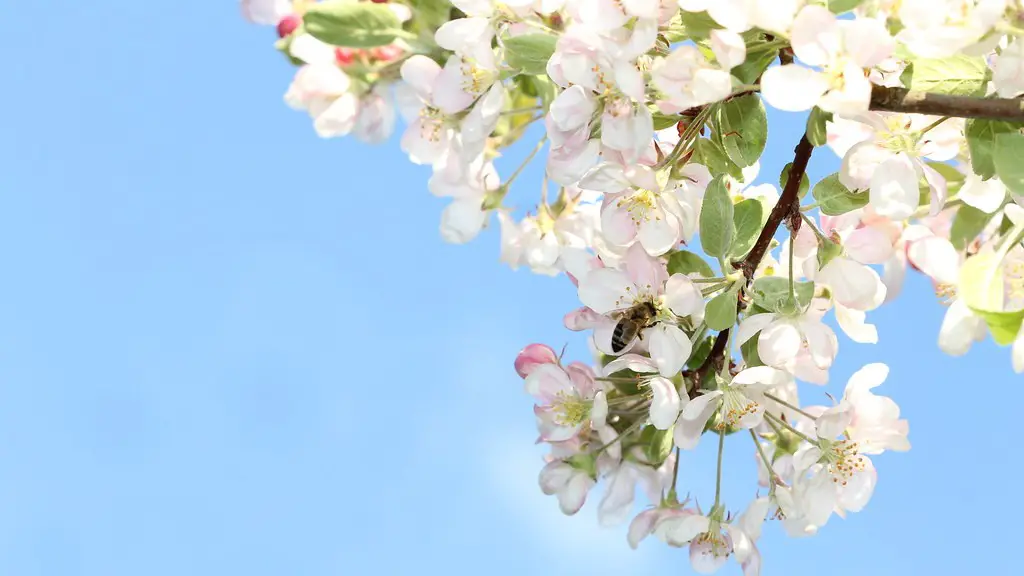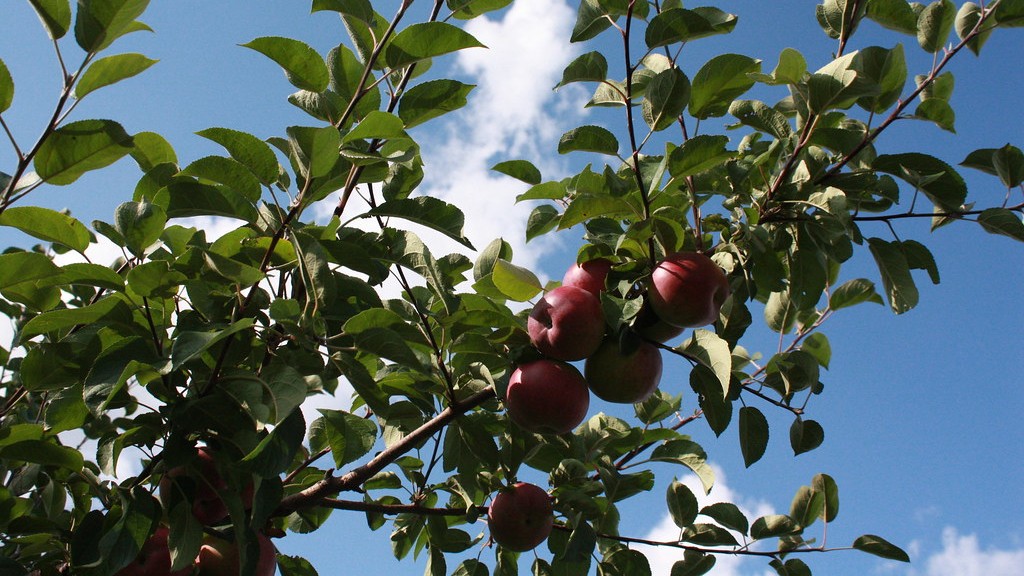Lemon trees are known for their yellow lemon fruit and dark green leaves. The leaves of lemon trees are an important source of nutrients for the tree, as well as a key visual sign that the tree is healthy. However, if you notice that the leaves of your lemon tree are turning yellow, it could be a sign that something is wrong with your tree. In this article, we will discuss why the leaves on a lemon tree turn yellow, and how it can be prevented.
Yellowing leaves on a lemon tree can be caused by a variety of factors. One common cause is a nutrient deficiency. Lemon trees need adequate levels of nitrogen, magnesium, and iron to maintain healthy leaves, and if the soil lacks these nutrients, the leaves can turn yellow. The tree may also develop chlorosis, which is a condition in which chlorophyll becomes impaired, preventing the leaves from turning green.
Another potential issue is the wrong pH balance in the soil. The optimal pH range for lemon trees is 6.0 – 6.5. If the soil has a pH level outside of this range, it can cause an imbalance in the uptake of nutrients and result in yellowing leaves. The pH also needs to be checked to ensure that other nutrient deficiencies are not in play, as changes in the pH can cause nutrient deficiencies, leading to yellowing leaves.
Fungal and bacterial infections are also a potential cause of yellowing leaves. These infections weaken the tree and can cause the leaves to turn yellow. In severe cases, the branches may become brittle and die, which can lead to further yellowing of the leaves. It is important to keep an eye out for signs of disease, such as leaf spots or wilting leaves, in order to address the issue early.
Finally, yellow leaves can be caused by environmental factors such as extreme heat, cold, or drought. If the tree is not getting enough water, or if it is exposed to conditions that are too hot or exposed to too much direct sunlight, the leaves may turn yellow. It is important to check the soil moisture often and to provide the tree with adequate water, depending on the season.
Treating Yellow Leaves
If you notice that your lemon tree leaves are turning yellow, the first thing you should do is to check the soil to ensure the pH level is within the desired range. If it isn’t, you can adjust the pH with the help of a soil testing kit. You may also need to apply a nutrient-rich fertilizer to help balance out the nutrient levels in the soil.
If the above steps do not help and the yellow leaves still persist, then it may be necessary to treat the tree for a fungal or bacterial infection. If the yellowing of the leaves is due to environmental factors, then extra water or shade may be necessary. Another option is to provide mulch around the base of the tree to help keep the soil moist and cool.
Preventing Yellow Leaves
It is possible to prevent yellow leaves on your lemon tree by providing adequate care. Ensure the correct pH balance in the soil, and if necessary, use a fertilizer to restore nutrient levels. Also, make sure the tree has enough water to survive the season, and provide adequate shade to protect it from extreme temperatures.
In addition, keep an eye out for pests and disease, as they can wreak havoc on your lemon tree. Promptly remove any dead branches and leaves, trim any branches that are too close to each other, and make sure to clean up any fallen fruit from the ground. Lastly, be sure to use good pruning techniques to maintain a healthy tree.
Additional Treatments
In some cases, preventative measures may not be enough to keep the leaves of your lemon tree healthy. If the tree’s health continues to decline, you may need to use a fertilizer with a high nitrogen composition to help boost the tree’s nutritional intake. Additionally, you can use a fungicide or insecticide to help rid your tree of any fungal or bacterial infections that may be present.
If your lemon tree is covered in yellow leaves, you should also consider removing any dead or damaged branches. This can help reduce the strain on the tree and improve its overall health. Additionally, pruning the affected branches can help improve the overall health of the tree.
Soil Contamination
If your lemon tree leaves turn yellow, you should also inspect the soil closely for any signs of contamination. Common contaminants can include heavy metals and chemical spills, which can make the soil toxic and cause yellowing leaves. If this is the case, you may need to remove contaminated soil and replace it with fresh soil.
You should also consider testing the soil for the presence of pests. Pests can cause the leaves to turn yellow and prevent nutrient uptake, leading to further yellowing of the leaves. If you discover pests in the soil, you may need to take additional measures, such as spraying with an insecticide or using bait traps.
Foliar Spraying
Foliar spraying can be an effective way to help prevent yellowing leaves. This type of spraying involves applying a solution of water and dissolved nutrients directly to the leaves of the lemon tree. This helps the tree to quickly access the nutrients and maintain optimal health. Foliar spraying should be done twice a month during the growing season and once a month during the winter.
Conclusion
It is important to remember that the source of yellow leaves on lemon trees can be caused by a variety of factors. To help maintain healthy and vibrant leaves, it is essential to keep the soil pH balanced and maintain optimal nutrient levels in the soil. Additionally, keep an eye out for signs of disease, pests, and soil contamination. Lastly, foliar spraying can help boost the tree’s nutrient intake and restore the leaves to their natural green color.



